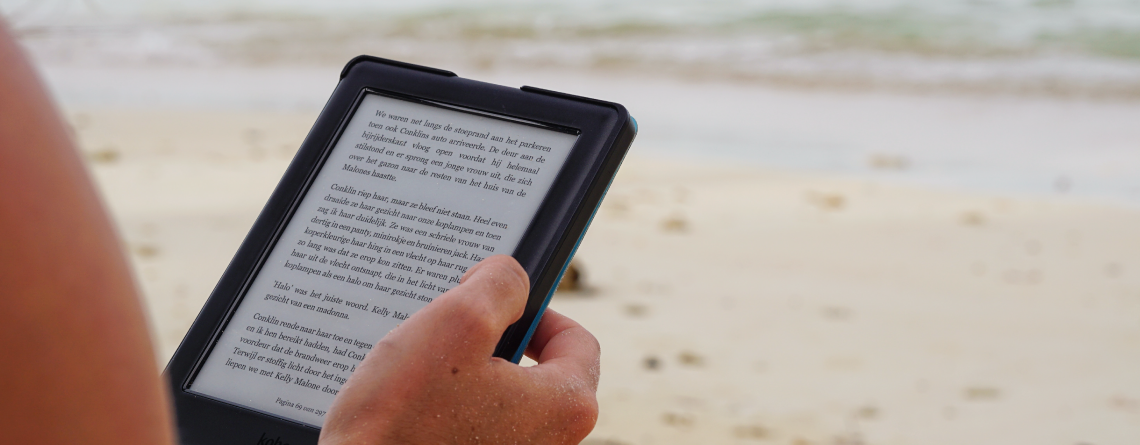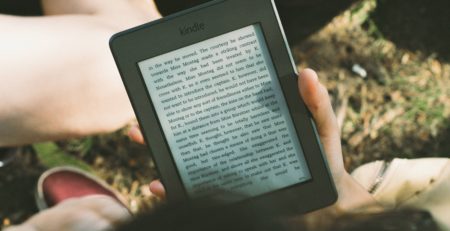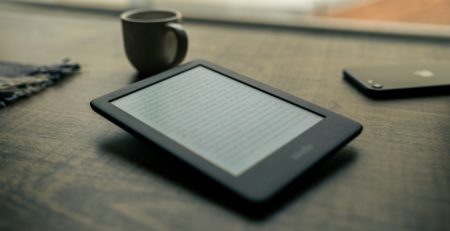The end of books, a non-sense
This is the second instalment of four publications that will outline the on-going evolution of the book industry.
Books create conversations, debates, controversies, and every generation has its titles. Sometimes studied in class, sometimes found in a library, or even discovered through a movie, books are almost part of our genetic identity. It is impossible to imagine a world without books.
The book as an object
I want to start this article by asking you the question: have you ever smelled a book? There is a particular odor between the pages that almost immerses you into the written words. For a moment, you can breathe the perfume or the scent of the story.
In Lire ou ne pas lire published in 1960 in the French magazine Esprit, American writer and artist, Henry Miller explained his point of view on the too many readings in our life and specifically on the effect that books as an object have on us: “The quest for a book, as some of us know, is often more rewarding than reading it.”
It can be absolutely overwhelming since the acquisition of a book may imply a moment of pure adrenaline, which suddenly transforms itself into a progressive illumination of our mind, as the words are being visualized.
It is as if someone were scraping one by one our neurons. Harmonically set down on the paper which quality depends on the edition, the written sentences would engulf us in a matter of an instant. The immersion is almost instantaneous.
Naturally, it is not necessary to sacralize the object, but it is important to have in mind its impact. Books have taken many forms in the course of time, and they continue to evolve as society’s desire is shaping contemporary trends.
For instance, many movies have been inspired by written stories. Books have been adapted time after time for the big screen, which have led to this great sentence, often heard outside of the cinema: The book was better!
The existence of other ways such as the cinema adaptation to reach books is fundamental. Although school is not always the best place to deeply appreciate the act of reading, books’ education brings people to enjoy them.
Is it not true that parents are often the first storytellers of our life? They are the first ones who try to immerse us into whatever story we ask them to read. Today’s audiobooks may have to compete with our parents’ interpretations.
What does the end of books mean?
Now, let me ask you another question: Is it possible to live in a world without books? Few writers have dared to share their thoughts on this possibility which somehow proves that the question is beyond belief.
From a fiction point of view, George Orwell with 1984 plunged us into a world without books and consequently without emotions, without education or vision in a totalitarian context.
Outside of fiction, books have also been burnt, prohibited, and censured: “We have the tendency to forget” said the Franco-American critic Georges Steiner (2005) “that books, eminently vulnerable, can be deleted or destroyed. They have their own story, as much as the other human productions, a story whose very beginnings even contain in germ the possibility, the eventuality of an end.”
Indeed, there are statements given twenty years ago, or even less, regarding physical books in the way we know them today. In 1992, The New York Times journalist Robert Coover, pictured the end of books, particularly the end of the novel as we know it today, through the arrival of Hypertext.
Back in the nineties, electronic text processing inaugurated a new era for writers, introducing new forms of writing but also shaping a new relationship between the author and the reader: “How does one resolve the conflict between the reader’s desire for coherence and closure and the text’s desire for continuance, its fear of death? Indeed, what is closure in such an environment? If everything is middle, how do you know when you are done, either as reader or writer? If the author is free to take a story anywhere at any time and in as many directions as she or he wishes, does that not become the obligation to do so?” Somehow, the article anticipated the figure of what we describe today as prosumer.
“But writing is not data” (The Guardian, 2019)
What about artificial intelligence? There are already programs and software capable of ending an unfinished music composition such as the Symphony nº8 from Schubert. Publications like The New York Times or The Guardian already use this technology to create content. If you look on the Internet for books written by AI, you will find several lists of them.
Are we really going to read those books or is it about the performance or the debate that can emerge from it? Like the play Art, in which the author Yasmina Reza invites the readers to think about the rules that dictate art, and her character ends up buying a white painting.
The impact of disruptive technology on society is big because it proves the capacity of a trained intelligence to accumulate knowledge. It shows technical progress. Nevertheless, the machines that beat the chess master Kasparov and the Go master Ke Jie have not put an end to the practice of these games.
Catalan philosopher Josep Maria Esquirol in his essay about human life (2018) invites the reader to think about the impossibility for artificial intelligence to be us: “There is no way that Artificial Intelligence can have a lump in the throat.”
Everybody can write a book
We may still have some time before Artificial Intelligence starts to dream or to be confronted with the coincidences of daily life that can change the string of a narrative. My final question for you would be: Is it true then that everybody can write a book? In the past, if a publisher house wouldn’t take your work, you had the option to let it go or to pay for the book to be published. In the latter case, your manuscript would maybe still be corrected and improved. Today, you can publish for free, but this possibility does not transform you in any case into a good writer.
Those thoughts lead to the strong belief that publishers cannot disappear. Despite the emergence of self-publishing and the rise of digital platforms, there will always be the need for an intermediary between the writer and the public who curates, manages, hosts or disseminates material: “Publishing is fundamentally the management and dissemination of content” (FEP, 2006). There is no life for quality books without publishers.
Article by Marjorie Grassler – Communications Executive at Mobile World Capital Barcelona












